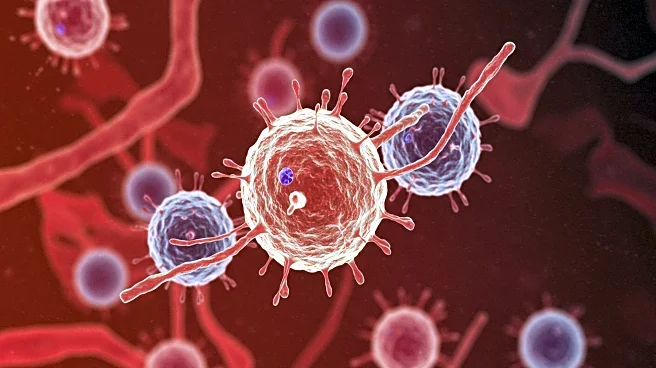What's Happening?
Emma Maria Mazzenga, a 92-year-old sprinter from Padua, Italy, is the subject of scientific study due to her extraordinary physical fitness. Despite her age, Mazzenga holds four age-group world records and continues to compete, often against herself due to a lack of competitors in her age group. Researchers from Italy and the U.S. are examining her muscles, nerves, and mitochondria to understand how she maintains such high levels of fitness. Mazzenga's cardiorespiratory fitness is comparable to someone in their 50s, and her muscle mitochondria function similarly to those of a healthy 20-year-old. The study aims to explore how muscles change with age and what factors contribute to Mazzenga's exceptional physical condition.
Why It's Important?
The study of Emma Mazzenga's physical fitness could provide valuable insights into the aging process and how to maintain muscle health in older age. Understanding the biological factors that allow Mazzenga to perform at such a high level could inform strategies for improving health and longevity in the general population. This research may lead to advancements in geriatric health care, offering new methods to preserve muscle function and overall physical fitness in the elderly. The findings could benefit industries focused on health and wellness, as well as public health policies aimed at promoting active lifestyles among older adults.
What's Next?
Researchers plan to continue studying Mazzenga's muscle and submit their findings for peer review in academic journals. The ongoing research will involve further experiments to gain a comprehensive understanding of her muscle physiology. Mazzenga herself is preparing for upcoming competitions, including races in Catania, Italy, and will return to the University of Pavia for additional testing. The study's results could influence future research directions in aging and muscle health, potentially leading to new interventions for maintaining physical fitness in older populations.
Beyond the Headlines
Mazzenga's case highlights the potential for older individuals to achieve remarkable physical feats, challenging societal perceptions of aging and athleticism. Her lifestyle and genetic factors may offer clues to achieving healthy aging, emphasizing the importance of consistent physical activity. The study also underscores the need for a holistic approach to health, integrating nutrition, cognition, and exercise to support longevity and quality of life.









